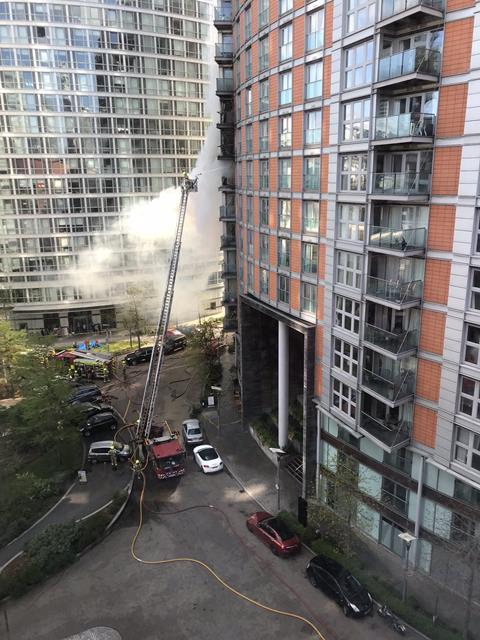Developer will not confirm if amount will cover all remediation costs
Ballymore has said it will pay £20m to fix fire safety issues across its housing developments in London, 10 days after a fire at one of its towers with ACM cladding.
But, while the Irish-Anglo developer has confirmed it will pay £5m more than the £15m it initially agreed with the government in February, it has not said whether the amount will cover the full costs.

This is the first time that Ballymore has publicly stated how much it plans to put towards resolving cladding issues and comes after heavy criticism that it had sought to pass too much of the cost on to leaseholders.
A spokesperson for Ballymore said the firm understood that “leaseholders [had] bought properties in good faith just as we built them in good faith and in accordance with building regulation”.
She added: “We decided in February to establish a £15m fund, and alerted MHCLG [Ministry of Housing, Communities and Local Government] to this, to pay for fire safety-related cladding works across our portfolio.
“Following these recent meetings, we told the government and our affected residents’ associations that we intended to increase the fund to £20m to bridge the shortfalls between the cost of works and what will be covered by the government funds.”
As a privately-owned business, the firm said that the £20m figure represented a “very substantial contribution” but did not guarantee that it would cover all costs.
The spokesperson added: “We are hopeful that all costs of remedial works for fire safety can be covered between the government’s fund and Ballymore’s fund.
“However, we will not be able to commit this until such time as the relevant approvals are in place for the Building Safety Fund. We await finalisation of the scope of works for each building to fully understand the nature of the shortfalls across affected properties under our management. We hope to clarify this by September.”
The fire at the developer’s New Providence Wharf scheme in Poplar, east London, earlier this month came in the wake of a long campaign by residents to get Ballymore to replace Grenfell-style combustible ACM panels on the new-build block. A subsidiary of the developer was put on a “name and shame” list of landlords who had failed to take action on combustible cladding by the government at the start of the year.
But, in a statement issued in the wake of the fire, Ballymore said: “We can confirm that the ACM cladding on the building did not combust and played no part in causing or facilitating the fire.”
The firm said that enabling works to start removal of the cladding had begun two weeks before the fire.
A spokesperson for the MHCLG told The Guardian: “Fixing unsafe cladding is the building owner’s responsibility and, as the housing secretary said when he met with them last week, it is deeply disappointing that Ballymore took so long to begin work at New Providence Wharf.”




























No comments yet